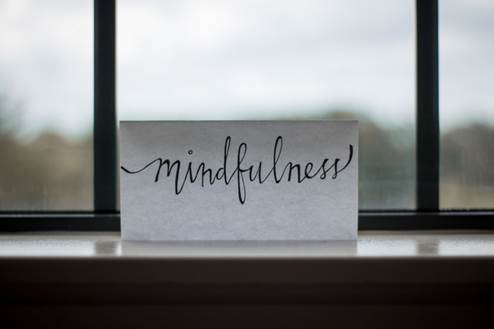Day 365 + ???? (who’s counting) of the pandemic and it seems like everyone is decluttering. We’re all trying to hold true to our reoccurring New Year’s Resolution to ”Get Organized.” Getting Organized can mean different things to us but it usually involves some sorting and culling of categories of stuff.
In our experience, there are always 3 decision buckets your stuff will fall into:
Our NAPO colleague, Barbara Hemphill, coined this brilliant definition: Clutter is Postponed Decisions.™ Clutter builds when we postpone decisions about:
• Do I really love it?
• Will I use it?
• Does it fill a void in my life?
• If I’m keeping it, where should it live?
While you do need to decide about your stuff, you do NOT want to stop the decluttering process to ponder each individual item.
Our time-saving advice is DEFER your decision for the “maybes” and “I don’t knows.”
These tricky decisions deserve attention — but NOT while you’re in the initial stages of rapid-fire, gut reactions to your stuff.
If you stop your intuitive process of deciding Yes, No, Maybe you won’t get through the whole category of stuff and you won’t see visible signs of progress. This will feel depressing and probably halt the whole decluttering process.
Follow our advice and schedule time with yourself — on a separate day — when your mind is fresh and you’ll taste sweet success. Technically, it’s called time chunking. In practice:
• One organizing session is dedicated to quick, visceral decisions.
• Another for contemplative, thoughtful and reasoned thinking.
Permission granted to defer your decisions on all of your “maybes” and “I don’t knows” — not because pushing off until tomorrow is a winning strategy. Permission granted because setting aside the necessary time to consider what deserves a place and space in your life is worthy of your full attention. In this case, deferring the decision is a smart move.
By Geri Chark Frankel, GCF Organizing LLC, (856) 296 6605

Kudos to you! Somehow you have found a few minutes to read this blog during this busy holiday season. How did you manage it?
Is it a much-needed break from work? Are you avoiding a task you just can’t face right this minute? Are you a passionate follower of all things about organizing? Do you want to honor your NAPO colleague by reading her words?
I am curious about your answers, and welcome you to explore them. First, there is no right answer. There is YOUR answer. And to get to that answer, I’d like to you give yourself permission to:
STOP – PAUSE – REFLECT. Did any insights rise up? Did you get a glimmer of what your priorities are? Should be?

Now let’s take this tool and use it as you head into a New Year… and into any organizing/time management/productivity project large or small about which you feel stuck.
For example, you have a huge amount of memorabilia: inherited from relatives, reminders of your childrens’ youth, and your own school, personal and work papers. This stuff all reminds you with what your life has been woven together. Maybe it even symbolizes your core identity. It’s hard to let to go. Even editing them down, creating digital (photos, scans) records of them does not seem possible.
So let’s STOP PAUSE REFLECT. And ask yourself this: What Matters Most To Me NOW? Is it making room for other activities in the space now clogged with memories of the past? Is it giving myself a beautiful space in which to create my life today? What are my core needs and values, and how might they be best served?
In my experience working with hundreds of clients over the years, they all know these answers, deeply and profoundly. Decluttering and creating a life that reflects who they want to be is greatly facilitated by taking the time and energy to develop the self-awareness that bursts forth from mindfulness. Give it a try!
Wishing you joy during this holiday season,
Geri Chark Frankel
GCF Organizing LLC
Authors: Lea Gallagher 405.458.0408 and Rie Brosco 215.435.5609

When it comes to an organizing project (or really, anything in life), the words we say out loud or think in our heads can either empower us or hold us back. Today, we want to share with you three words we loathe and three words we love. They apply to the work we do helping clients organize their space, and they have broader application in life as well.
REDUCE THE USE OF THESE THREE WORDS WE LOATHE
Maximize. Hello, corporate speak! Does anybody else think this word sounds a little soulless? When you hear the word maximize, does it imply that the only way to operate is at 100% or 110%? But everyone needs wiggle room and flexibility! We don’t need to be everything to everyone all the time, and that’s what maximize makes us think of.
Productivity. This word goes right with maximize as it is often paired together, as in maximizing productivity. It’s pretty ingrained in American culture that we need to be productive. But we are all worth more than our productivity! Don’t connect your self worth to how much you can produce for someone else. I’m in full support of efficiency, but not productivity at a negative cost or impact. Remember, sometimes the best thing is to NOT be productive. Down time rejuvenates the soul and helps make the time when we are working on a project more fruitful.
Perfect / Should. Okay, that’s two words, but they’re related. There’s no such thing as perfect, and all too often, we set unrealistic expectations of ourselves to try and reach that impossible standard. And in seeking perfection, we create a lot of “shoulds” for ourselves: we should do this or we should do that. A friend of mine often says, “Don’t should on yourself.” Just for a day, keep track of how many times you think or say you should do something. Bet you’ll be surprised by the weight you’re putting on yourself unnecessarily.
REUSE THE USE OF THESE THREE WORDS WE LOVE
Progress. This one’s about the continuous journey! We are all works in progress. We’re on our own path and at various spots along the way. Progress feels hopeful and implies growth and forward movement. And it’s okay if your progress isn’t always linear and doesn’t look like somebody else’s progress. What matters is that you’re making progress for you.
Can. A much better word than should! If you believe you can or if you believe you can’t, you’re right. It’s more of an active choice versus the burden of should. We can choose to do something. We can also choose not to do something. There’s a difference between, “I should do the dishes,” and “I can do the dishes because I want my sink to be clean.”
Enough. This one’s empowering to me (Lea) as a recovering perfectionist. Each of us gets to decide what’s good enough or what’s done enough for us. There’s wiggle room! It also implies that there’s a stopping point where you can shift your focus to other things like relaxing or spending time with family or being creative. If you spend all your time on one thing until it’s perfect, it may never be good enough and you will be neglecting everything else. And perfect isn’t actually possible, so you’re missing out for no reason. Focus on what’s enough and move on.
In today’s world where we all try to reduce, reuse and recycle as much as possible to save and improve our environment, we encourage all of us to reduce and recycle the use of the words we loathe. Instead, strive to reuse the words we love and expand the joy in our lives.
Ah, new relationships! They can be fun and exciting, right? You love being together every day, you fall deep into the honeymoon period, and you feel that your partner is the best thing ever…
Hmm…do you remember mid-March, and a certain technology that blew up? Read the sentence above replacing Zoom with your partner…still works, right!
Yes, Zoom! I remember that gut wrenching feeling of being alone when we first learned that much of the world had shut down. Add living alone to that and it can really throw you for a loop.
My networking group started moving onto the platform that many of us were just starting to learn about. Working through kinks, like Zoom bombers, the leaders of our group helped us navigate through our new normal and suddenly I was with my friends again! It felt SO good!
I was on every day for a while, either networking, with friends, or with family, going to Zoom birthday parties and gathering for Zoom trivia nights. On my birthday in May, my friends threw me a surprise Zoom birthday and more friends appeared flash mob style to one of my favorite songs.
I loved Zoom! I couldn’t get enough of Zoom, until the day came that I could. Just like the honeymoon phase in a relationship, my relationship with Zoom peaked, and I reached the level of Zoom Fatigue, which many of us are facing today.
I just didn’t want to be on it anymore and faced that alone feeling again. I learned to fill my days in different ways, and after a while, as the world was starting to open up a bit, I started new routines with more balance.
Zoom is still a part of my new normal. I became a part of an accountability group with a few friends, go to a few networking meetings a week and even started virtual organizing with clients.
If you are still in the fog of Zoom Fatigue, here are some things to try to make being on it fun again:
So, learn to love Zoom again, but try to keep a life balance, and leave the honeymoon period for people, not the latest tech craze. Wishing you, your family, and your friends, a happy and healthy Fall!

In 2015 Forbes reported a Bureau of Labor statistic affirming that, in 1930, the average American woman owned 9 outfits. This, as opposed to a current day figure of about 30 outfits – one for each day of the month.
In 2016 a survey of 1,000 American women was conducted by ClosetMaid. It found that women only really like 10 percent of their wardrobe. It also found that one in ten women are depressed when they open their closet and 40 percent say that they don’t like any of their clothes.
As Americans, we are blessed with an abundance of choices when it comes to clothing and fashion. A broad variety of style, quality and affordability surround us. Yet, we can surmise from these two studies that, in the U.S., we have more clothing than ever before and are less satisfied with what we have. So where does the disconnect lie? How do we get from Point A – the clothing that we own; to Point B – happiness?

There are many explanations centered around the social and psychological motivations behind our large wardrobes and our dissatisfaction. Compulsive shopping, ecological reasoning, “retail therapy”, depression and loss are just a few theories offered.
The anxiety experienced when contemplating and processing the variety and abundance we face upon viewing our overcrowded wardrobes adds a real neurological strain. We end up starting our days stressed-out even before we walk out our front door.
Although it remains important to address the underlying reasons for overwhelmed and overwhelming closets and spaces, professional organizers (unlike therapists) also get the opportunity to directly address the physical issues as well. Addressing spacial congestion is empowering, encouraging a feeling of control over the environment, a feeling that can help ward off anxiety and depression.
Here are three simple tips for actions that you can take today that will make a difference every day.
Start with unused hangers and empty boxes that take up space for absolutely no reason. A dozen empty hangers can take up to a foot of space on your hanging rod – a whole foot! There may be many hiding between crowded garments so be sure to filter through everything. Next, begin at one end and review each garment. Remove all items that can be tossed or donated; toss the trash, then bag and label the rest for “Donation”.
Unless you live in a temperate climate where your entire wardrobe is versatile for year-round use, there are very few reasons to keep all of your clothing at hand in your closet all of the time. Separate items you are keeping into two seasonal categories: Fall/Winter and Spring/Summer. Keep the current half at hand in your closets and dressers. Store the other half in plastic bins or space bags. Take advantage of the seasonal switch to purge items that you no longer want before storing the rest.
Okay, I will admit that this may sound a little “organizer”-geeky, but try it out before you scoff. Imagine you are looking for your favorite pair of black pants. The ones that fit just right and aren’t too long or too short. Do you have to go in between all your tight spaces in your closet to find them before realizing they are at the cleaners? Not if your closet is color coordinated. You will simply go through the section of black pants. Not there? Then they are in the laundry. Need to put together a quick outfit? Easy to do when your eyes are simply matching colors and not hunting between randomly hung, tightly crammed fabrics.
As parents face the annual back to school routine this year, perhaps we need to revise the standard preparation for the first day of school. Rather than discuss how to organize your physical “stuff” for school, we are going to discuss the ABC’s for organizing a plan to address stress during this challenging time.
ASSESS
Many parents experienced the challenge of online learning (aka – distance learning or at-home learning) with their children this spring. As school openings fast approach, it is a good time to stop and assess how that online learning experience went for your family. What worked well? What did not work well? And most importantly, why didn’t it work? The best way to find a solution to a problem is to understand the root cause of the problem. If your child was too distracted or had difficulty paying attention to online sessions, think about why he or she was distracted and do your best to address that distraction. Was their sibling doing their lesson in the same room? Were toys in the room that caught their attention? Was background noise a disturbance? Perhaps switching the room for their online learning or putting away some toys may lessen the distraction. Wearing ear buds might reduce the background noise. There is no one size fits all answer to this issue or any other issue you may have encountered. The key is to figure out why the situation did not work so you can identify a solution that will work for your family. And, for those who have not been through online learning as of yet, reach out to family and friends who have experienced it and get their input on what worked for them to see if it can work for your family.
BALANCE
Dealing with our children can be challenging in general. So, having to deal with online learning or blended learning, in addition to normal daily stresses, can be overwhelming for some. Many parents are also trying to work from home which compounds that stress. Finding balance amidst the chaos may be beneficial. Take time before school begins to identify ways to balance the hectic environment that may exist during the school day. A quick 5 to 10-minute stress-reducing activity should provide relief. The list below is in no way all inclusive.
Also, our children are not immune to the stress that online learning may create. They may find some of the items above useful when they encounter a feeling of anxiety. Here are a few additional suggestions:
Figure out what works best for you and for each of your family members.
COMMUNICATE
Creating a productive environment for both you and your kids is a goal for many parents. Open communication can contribute to that goal. Does your spouse know you have a 10am conference call and he or she needs to handle any issues that may pop up during that call? Does your son have a test tomorrow and needs quiet time to study? Is your daughter struggling with a lesson and needs additional tutoring? Having open discussions about the needs of each family member can go a long way to reducing stress during the day. The discussions don’t need to be formal. While clearing the dinner table ask a question like “Do you need anything from me to prepare for tomorrow?” or “Are you stressing about anything and, if so, how can I help?” Speaking to someone about their needs can help ease their tension. And don’t forget to let your family know of your needs as well. If they don’t ask you what you need, you can bring it up to them. Let them know that you have that conference call at 10am and ask that you not be disturbed for that hour. Remind them that the dog needs to be walked at lunchtime and ask who can help with that task. Communicating effectively will let each family member know you are all there to support each other.
Using the ABC’s above may not eliminate all the stressors you will face this school year. However, utilizing Assess and Communicate as proactive steps to help prevent stress, and incorporating Balance when stressful situations arise, may help you get back on track and allow you to have a productive day.
Karen Kabara
Your Tasks – Our Time, Inc
